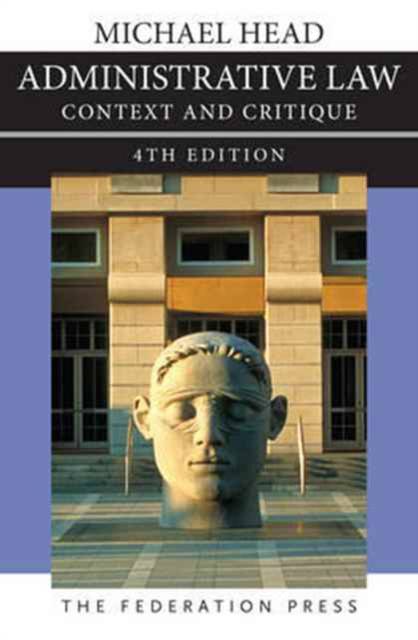
- Retrait gratuit dans votre magasin Club
- 7.000.000 titres dans notre catalogue
- Payer en toute sécurité
- Toujours un magasin près de chez vous
- Retrait gratuit dans votre magasin Club
- 7.000.0000 titres dans notre catalogue
- Payer en toute sécurité
- Toujours un magasin près de chez vous
Description
Constant changes in administrative law and shifting political winds reinforce the need for an up-to-date volume that critically examines the law in its contemporary, as well as historical, context.
This fourth edition assesses the amalgamation of the federal administrative tribunals, the abandonment of plans to abolish the Australian Information Commissioner, the revamping of the rules regarding federal delegated legislation and the controversies around the rules of standing to challenge government environmental decisions.
It also reviews a string of possibly far-reaching High Court rulings, such as Minister for Immigration and Citizenship v Li (unreasonableness revamped), Plaintiff M-64-2015 v Minister for Immigration and Border Protection (government â oeprioritiesâ ruled relevant), Maritime Union of Australia v Minister for Immigration and Border Protection (limits on the use of ministerial determinations), Wei v Minister for Immigration and Border Protection (jurisdictional error and the mandatory/directory distinction), Minister for Immigration and Border Protection v WZARH (procedural fairness and â oelegitimate expectationsâ ) and Isbester v Knox City Council (bias and the Stollery principle).
These developments highlight the ever-evolving shape of administrative law. They underscore a central argument of this book â " the necessity to examine the content and trajectory of administrative law in its political, administrative and socio-economic settings.
This edition is further fashioned from the authorâ (TM)s experience of teaching administrative law since 1998.
Spécifications
Parties prenantes
- Auteur(s) :
- Editeur:
Contenu
- Nombre de pages :
- 384
- Langue:
- Anglais
Caractéristiques
- EAN:
- 9781760020842
- Date de parution :
- 20-02-17
- Format:
- Livre broché
- Format numérique:
- Trade paperback (VS)
- Dimensions :
- 159 mm x 235 mm
- Poids :
- 580 g

Les avis
Nous publions uniquement les avis qui respectent les conditions requises. Consultez nos conditions pour les avis.






